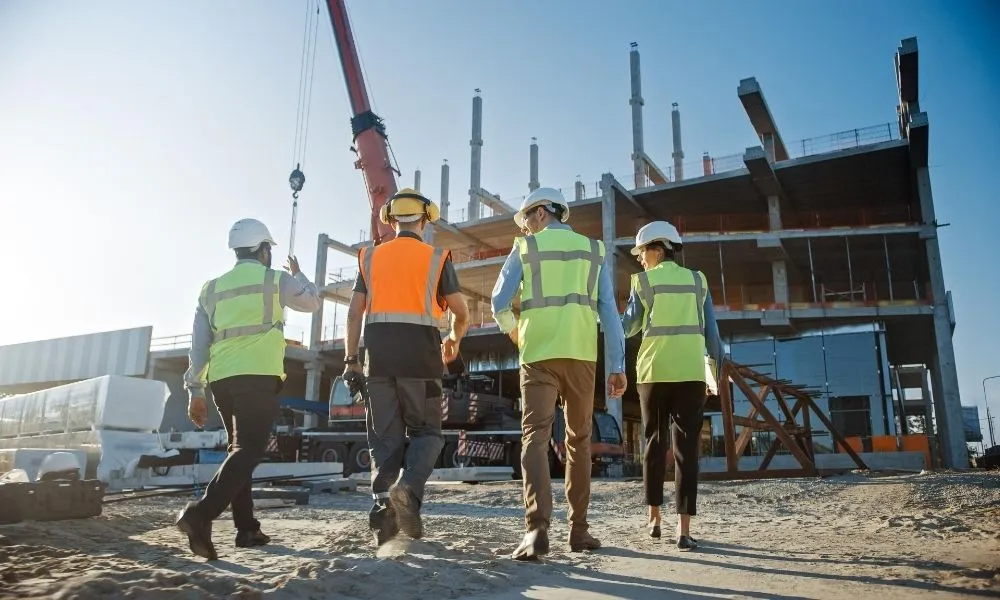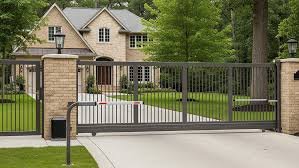Breaking Ground: What to Know Before Hiring a Commercial Builder

In today’s fast-paced construction landscape, bringing a commercial building project to life requires more than just bricks, beams, and blueprints. It takes vision, coordination, technical expertise, and perhaps most importantly—a reliable commercial builder. Whether you’re constructing a new office park, retail space, or industrial facility, choosing the right builder can make or break your investment.
This in-depth guide explores the role of a commercial builder, the services they offer, and how to select the best partner for your next big project.
1. The Backbone of Modern Infrastructure: Who is a Commercial Builder?
Before diving into contracts and construction timelines, it’s important to understand exactly what a commercial builder does. In the simplest terms, a commercial builder is a licensed professional or firm that specializes in the construction of commercial properties. These include office buildings, warehouses, retail stores, healthcare facilities, hotels, and more.
Unlike residential contractors, commercial builders manage large-scale projects that involve more complex systems, stricter regulations, and higher stakes. They coordinate with architects, engineers, suppliers, and subcontractors to ensure each phase of the project is executed safely and efficiently.
Moreover, a commercial builder takes the reins on everything from budgeting and scheduling to zoning compliance and inspections. Their ability to foresee issues before they arise is one of the most valuable assets they bring to the table.
2. From Paper to Project: Services Offered by Commercial Builders
A reputable commercial builder provides a comprehensive suite of services designed to support every stage of the construction process. These services are not limited to laying the foundation and erecting steel structures—they extend far beyond.
Pre-Construction Planning
This is where strategy meets practicality. During this stage, commercial builders help clients with feasibility studies, budgeting, site selection, and permitting. Accurate planning at this stage sets the tone for a smooth construction process.
Design-Build Solutions
Many modern builders offer design-build services, where the builder and architect work under a single contract. This method streamlines communication, reduces design errors, and often shortens project timelines.
Construction Management
Throughout the building phase, commercial builders coordinate labor, materials, equipment, and safety. They ensure that work progresses according to plan, and they proactively manage risks to avoid delays and cost overruns.
Post-Construction Support
A quality builder doesn’t just hand over the keys and disappear. Many offer post-construction services such as maintenance guidelines, warranty management, and facility optimization to ensure the longevity of your investment.
3. Why Experience and Reputation Matter More Than Price
It may be tempting to choose the cheapest bid for your commercial project, especially when construction costs quickly add up. However, this approach can lead to hidden expenses, project delays, and frustrating legal disputes.
Instead, prioritize experience and a proven track record. An established commercial builder brings valuable insight that only comes from years of hands-on work. They’ve likely encountered—and solved—dozens of challenges similar to what your project might face.
When evaluating potential builders, consider:
-
Past Projects: Ask to see examples of completed work. Look for similarities in size, scope, and industry.
-
Client Testimonials: Reputation matters. Positive feedback from past clients speaks volumes about professionalism and performance.
-
Certifications and Insurance: Verify that the builder has all necessary licenses, liability coverage, and industry certifications.
-
Transparency: A reliable builder will communicate openly about timelines, budgets, and expectations from day one.
For businesses in need of trusted construction support, an experienced Commercial builder with a deep portfolio and commitment to quality can turn your vision into reality—on time and on budget.
4. The Importance of Local Knowledge in Commercial Building
While many builders operate on a national or regional level, hiring one with local expertise offers significant advantages. Every municipality has unique zoning codes, environmental laws, and permitting processes that can be complex to navigate.
A local commercial builder will already have relationships with municipal officials, inspectors, and utility providers. This insider knowledge can fast-track approvals and reduce the likelihood of red tape slowing down your project.
Additionally, local builders have a strong network of trusted subcontractors, suppliers, and tradespeople. This not only ensures consistent quality but also creates flexibility when adjustments are needed mid-project.
Weather conditions, soil types, and regional building styles also differ from place to place. A builder familiar with your geographic area will factor in these elements when planning and executing the project.
Ultimately, working with a builder who knows your market can mean smoother operations, faster results, and fewer headaches down the road.
5. The Future of Commercial Construction: Trends to Watch
As industries evolve, so too does the field of commercial construction. Today’s commercial builders are expected to deliver more than just durable buildings—they’re expected to create spaces that are adaptable, sustainable, and tech-forward.
Green Building Practices
With rising energy costs and increased environmental awareness, many businesses now prioritize sustainable construction. Commercial builders incorporate features like energy-efficient HVAC systems, solar panels, LED lighting, and sustainable materials to meet LEED certification standards.
Modular Construction
Prefabrication is growing in popularity due to its speed and cost-efficiency. Modular construction allows sections of a building to be built off-site and then assembled on location. This approach reduces weather-related delays and enhances quality control.
Smart Technology Integration
From smart lighting and temperature control to advanced security systems, today’s commercial buildings often come equipped with the latest in automation. A forward-thinking builder will know how to integrate these systems from the outset, creating more functional and efficient spaces.
Flexible Design
Post-pandemic, flexibility is more important than ever. Builders are designing spaces that can adapt to changes in tenant needs, occupancy levels, and health regulations. This includes features like movable walls, enhanced ventilation systems, and open-concept designs.
Final Thoughts: Building More Than Just Structures
Commercial construction is more than pouring concrete and raising steel frames—it’s about building the foundations of business success. Whether you’re launching a flagship store or expanding an industrial park, the right builder will be your partner in achieving that vision.
Choosing a qualified, experienced, and community-focused commercial builder is a critical decision. It affects everything from the quality of your final structure to your budget, timeline, and future operational efficiency.
So take the time to research, ask the right questions, and align yourself with professionals who see your project not just as a job—but as a commitment to excellence.



